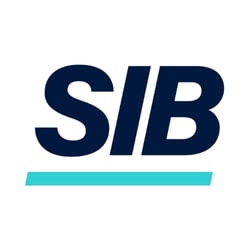Mike Helsel, a senior director at Gartner, a research and advisory firm, specializes in finance technology and transformation. Views are the author’s own.
In the quest for modernization, some CFOs face the temptation to abandon spreadsheets in favor of cloud-based ERP systems and other more recent technology innovations. Common reasons for moving away from spreadsheets include limits to scalability and the need for more robust data management and collaboration features.
Yet, using financial planning software (FPS) as an example, recent research indicates that 51% of finance leaders still opt for a detailed bottom-up planning process using spreadsheets and then load those sheets into the FPS. Using spreadsheets for core finance tasks like this is not optimal but there is also more nuance than simply stopping their use altogether.

Spreadsheets still offer unique advantages when integrated as a feature to cloud-based applications and can enhance financial operations in modern enterprises.
Integration
Modern ERP systems have evolved to integrate seamlessly with spreadsheets. Excel, for instance, can connect directly to ERP databases, allowing real-time data manipulation. This integration means that financial professionals can work in a familiar interface while ensuring their data is synchronized with the ERP system. This reduces the need for manual data uploads and minimizes errors, streamlining the workflow.
Moreover, spreadsheets offer a cost-effective solution that leverages existing talent. Training or hiring staff to use new systems for every use case can be expensive and time-consuming. By maintaining spreadsheets as part of the financial toolkit, organizations can capitalize on the skills their employees already possess, avoiding the steep learning curve and costs associated with new software.
Familiarity and flexibility
Spreadsheets are a versatile tool with which finance professionals are intimately familiar. Accountants and financial analysts have honed their skills in Excel, mastering its functionalities to manipulate data efficiently. This expertise allows them to perform complex calculations, create pivot tables, and execute VLOOKUPs with ease — tasks that they often find cumbersome in rigid ERP interfaces.
Spreadsheets also allow users to customize and adapt their workspaces to fit specific needs. This adaptability is crucial in a dynamic business environment where financial scenarios can change rapidly. CFOs should be harnessing this deep pool of expertise in their function rather than trying to leave it in the past.
Technology acceptance
Gartner research suggests that the success of implementing new technology in finance depends significantly on user acceptance. Forcing a shift away from spreadsheets can therefore hinder finance transformation, because it alienates staff who are comfortable and proficient in using them.
A common scenario is that employees are doing many tasks in a spreadsheet anyway and then importing the output into the new system. Instead of fighting this, CFOs should consider spreadsheets as a bridge to new technologies: looking for systems with spreadsheet integration to facilitate a smoother transition and ensuring staff remain engaged and effective. This way CFOs can achieve a balanced approach that harnesses the strengths of both traditional and modern tools while mitigating employee resistance to new technologies.
The democratization of data
Beyond simply being a tool to mitigate employee technology resistance, spreadsheets can play a wider role in finance transformation by serving as a catalyst for change. They allow organizations to experiment with new processes and models without the need for full-scale system overhauls. This capability is particularly important in the early stages of transformation, where flexibility and adaptability are key.
By using advanced features of spreadsheet applications, finance teams can pilot new initiatives, gather insights, and deliver process optimization by automating tasks, processes or workflows. This iterative approach not only reduces risk but also accelerates the transformation process, enabling organizations to adapt quickly to market changes and emerging opportunities.
Additionally, spreadsheets can aid in the democratization of data within an organization. They empower finance professionals at all levels to engage with data, derive insights, and contribute to decision-making. This democratization fosters a culture of innovation and collaboration, essential components of successful finance transformation.
The future of spreadsheets in finance
As organizations continue to evolve, the role of spreadsheets will undoubtedly change. However, their core strengths will ensure they remain an asset in the financial toolkit. Rather than viewing spreadsheets as outdated tools, CFOs should embrace spreadsheets for their flexibility, integration capabilities, cost-effectiveness, and user familiarity.
By leveraging spreadsheets integrated with cloud-based applications, CFOs can create a more agile and efficient financial environment, ensuring their teams are equipped to meet the challenges of an ever-changing business landscape. Spreadsheets are not just a tool of the past; they are a vital component of the future of finance.






















